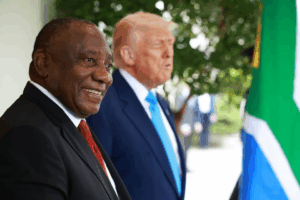
Source: Abrahams & Gross
If we don’t want the secular to interpret Islamic law, then we need an Islamic institution with powers like the CCMA to enforce obligations of men and women pertaining to maintenance and Islamic marriages, writes Saber Ahmed Jazbhay
On 28 June 2022, the Constitutional Court handed down judgment effectively recognizing Muslim marriages, especially those that are not registered in terms of the Marriage Act. However, the Court has given Parliament 24 months to amend those impugned provisions of the Marriage and Divorce Act that violated the rights of Muslim women and children to access to justice, equality as well as to human dignity.
The order recognising their rights as well as recognition of Muslim marriages is of immediate effect – and it affects all marriages entered into after December 2014.
I support the judgment and I pray that Muslim institutions take note and engage proactively in fulfilling their obligations and duties as gatekeepers of the custos morés prescribed according to the Shariah and principles informing it.
The Court, I have already noted infra, made no finding on whether the Shariah was consonant with the Bill of Rights under the Constitution. It noted the submissions made by, interalia, UUCSA, that the Shariah was consonant with the Bill of Rights.
I unpack, briefly, the foregoing, through what follows.
Nabee Muhammad (S.A.W) came to us both as a symbol and an epitome of Allah’s mercy to humankind and as a liberator of women as well. It’s a shame that it took a secular court to assert the rights of women and children in a Muslim marriage.
As I pen this op-ed, I have no doubt and, in fact I expect some fanatic will pronounce a “chuffer” court, short of 30 years to release Muslim women in South Africa from a gross failure on the part of Muslim institutions that purport to be guardians of the shariah and gate keepers of the custos mores of Islam, to give a truly purposive interpretation of granting and affording Muslim women their human dignity, freedom and equality as human beings and citizens in South Africa.
In all the five decided judgments I analysed , three, from the Constitutional Court, one from the SCA, and one from the Western High Court, in a span of, close on 15 years, lead me to infer that, if we do not want the secular to interpret and interfere in the domain of the religious, we need a proactive, effective institution of Islamic theologians, with quasi-judicial powers like commissioners at the CCMA, to engage and get involved and enforce obligations of men and women pertaining to maintenance and succession in Islamic marriages. This is what the CC hammered home in its 44 page judgment recently on the 28 June 2022 in Women’s Legal Centre Trust v President of the Republic of South Africa and Others [2022] ZACC 23.
Significantly against the ignorant indignantly bewailing that non-Muslims get to decide on shariah related issues, at para [60] it was stated that “[t] here has been no suggestion that extending the benefits to be derived from the Marriage Act and the Divorce Act to women in Muslim marriages and children born of such marriages will limit the right to freedom of religion guaranteed in the Bill of Rights”
It went on to declare that “[t]o the contrary, failing to extend such benefits infringe[d] the rights of women in and children born of Muslim marriages”
Clearly it declared that “[I]t should be made clear that the constitutionality of Sharia marital law is not under consideration.”And that the Court was not “required to determine whether Sharia marital law passes constitutional muster”.
Hardships
The court was “concerned about the hardships faced by women in Muslim marriages as a consequence of being excluded from the benefits derived from the Marriage Act and the Divorce Act.”
It noted the submissions on behalf of the WLCT, UUCSA and the MJC that the “Sharia marital law is not inconsistent with the Constitution.”
So what did the Court rule? Read, study the judgment which is easily accessible from the website of the Constitutional Court.
Significantly , * sections of the Marriage Act 25 of 1961 (Marriage Act) and the Divorce Act 70 of 1979. (Divorce Act) were declared to be inconsistent with sections 9, 10, 28 and 34 of the Constitution in that they fail to recognise marriages solemnised in accordance with Sharia law .
In summary, it held that the non-recognition of Muslim marriages was an infringement of the rights to dignity, equality and access to justice and what is in the best interest of children.
I personally support the judgment and what it found. As a legal practitioner, I found that Muslim Women, as second or third or fourth wives and children, in unregistered marriages are often discriminated against on divorce or the death of their husband.
For, was it not that Nabee Muhammad (PBUH) reportedly said that believers will conduct their affairs by mutual consultations? Or something approximating the same. And doesn’t Allah decree in Sura Nisa’a that men are protectors and maintainers of women? Let’s open the debate in a dignified manner and engage. But, I digress. That’s for another day.
Apart from the highest court ruling on declaring certain provisions of the Divorce and Marriage Act invalid and unconstitutional, I studied four other cases and in each of the cases I found the one common denominator and that was that it seems that women had no power to assert and enforce compliance of their rights without judicial intervention.


